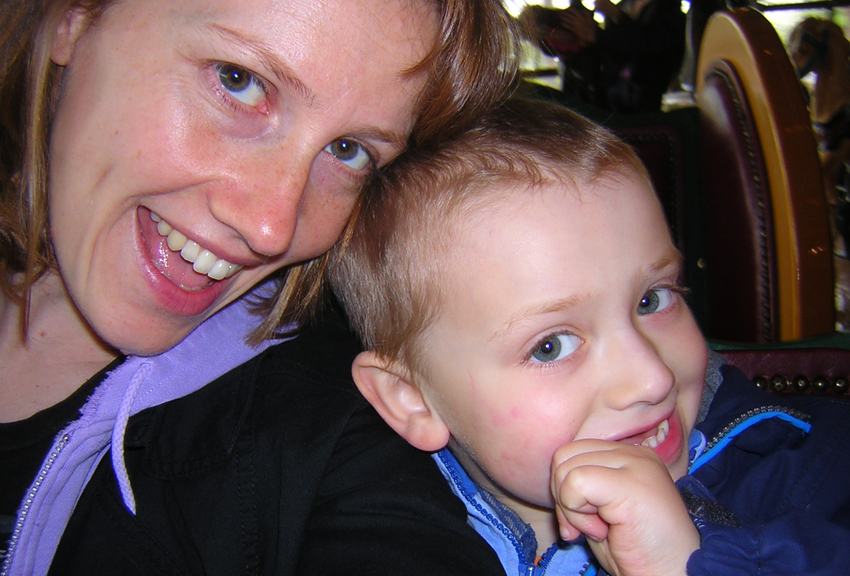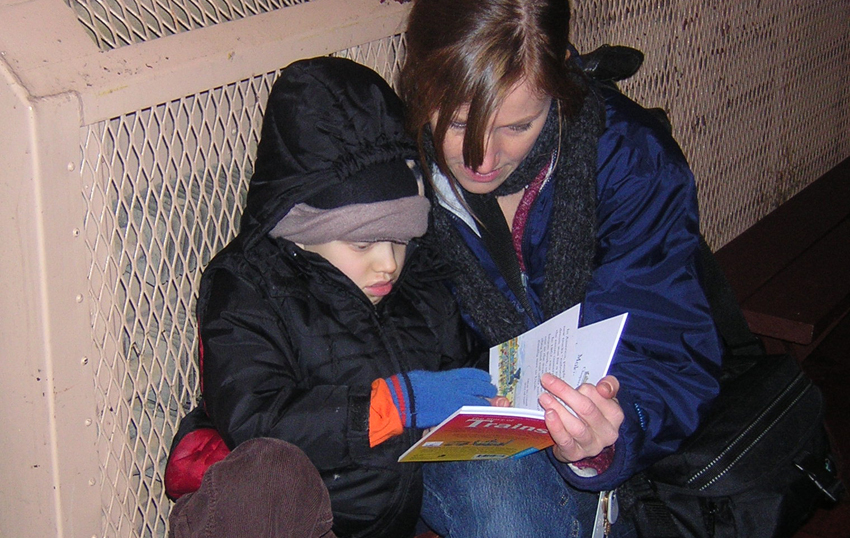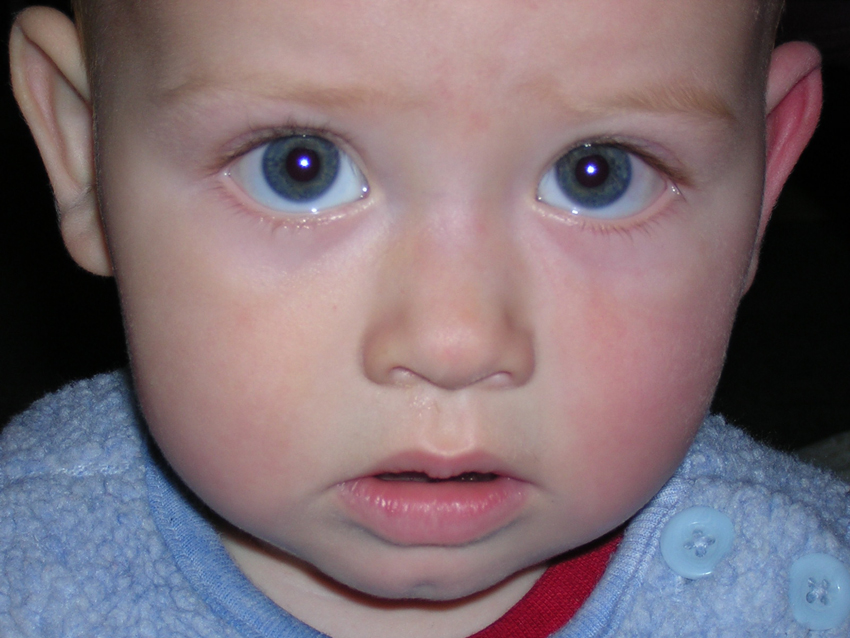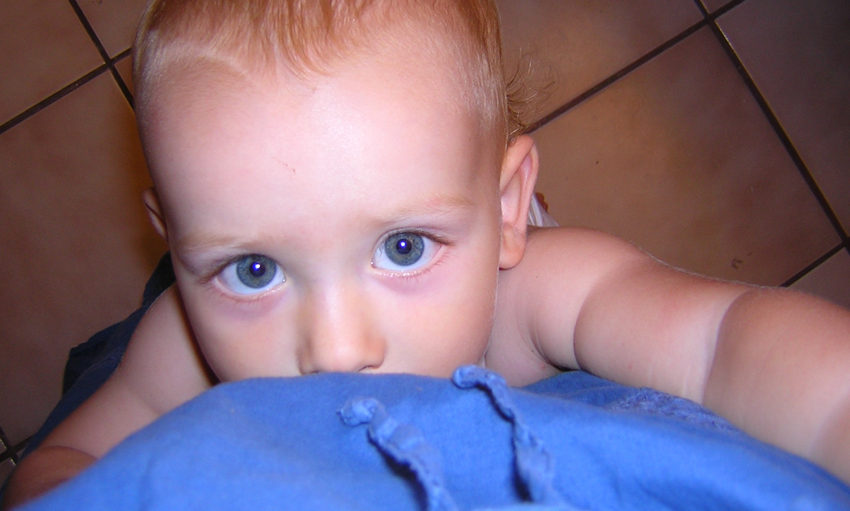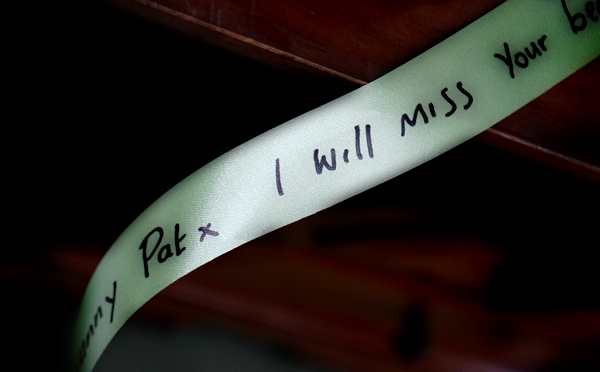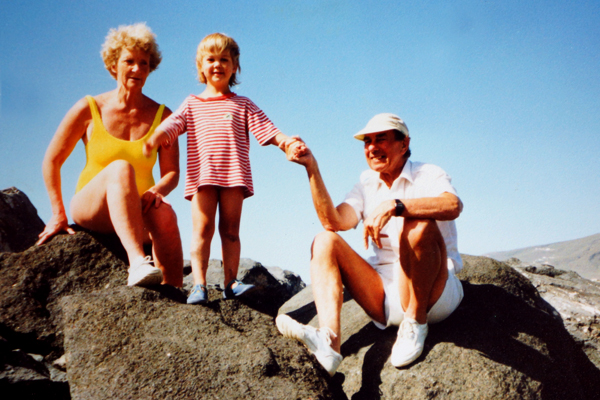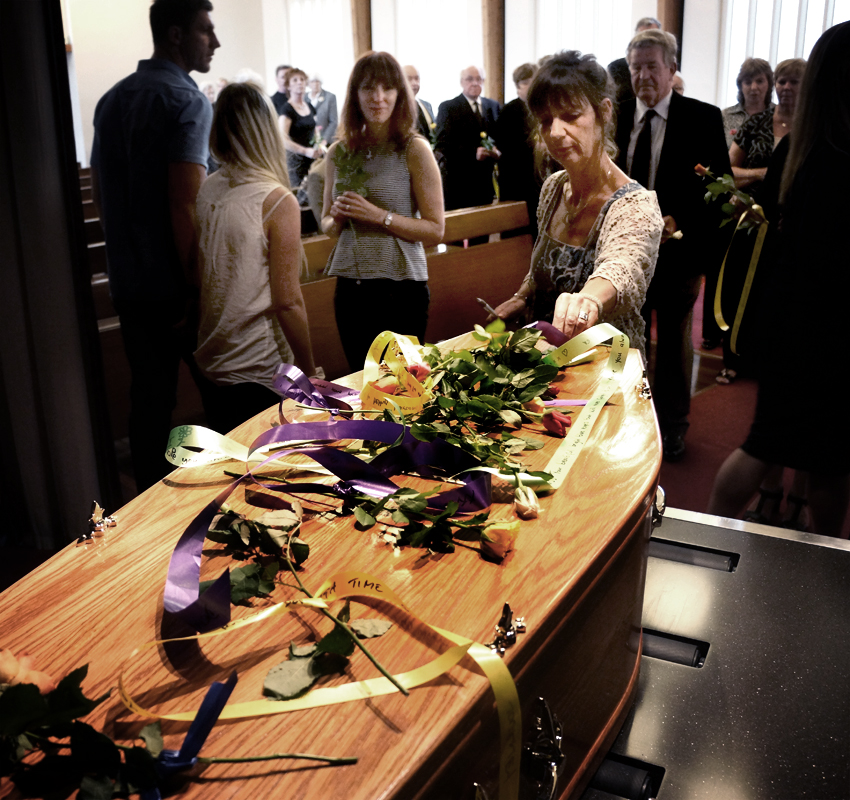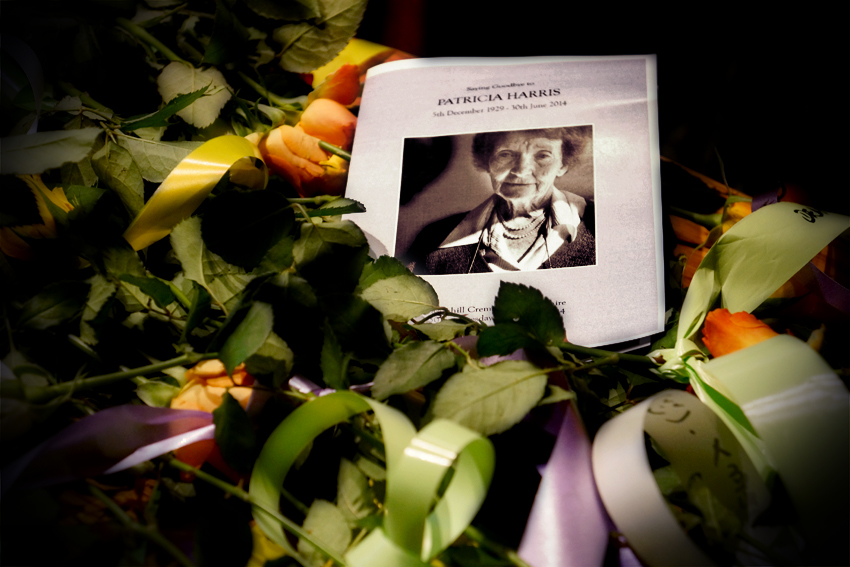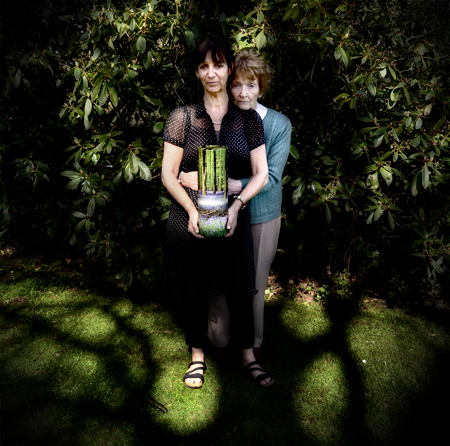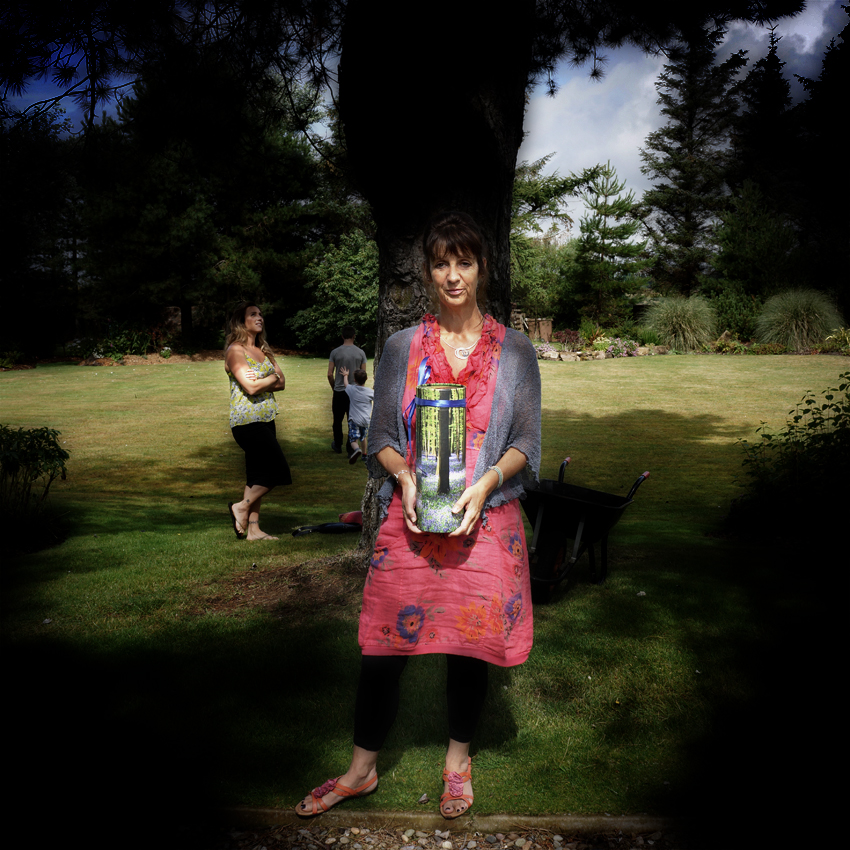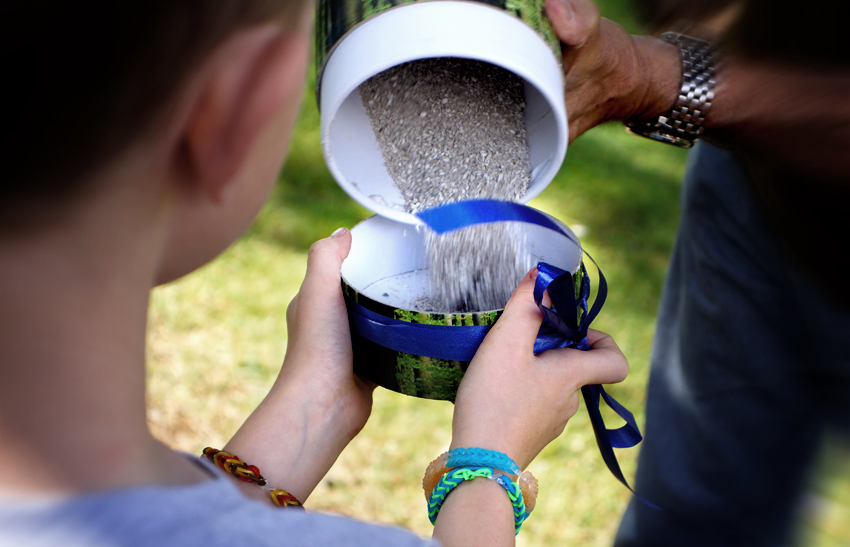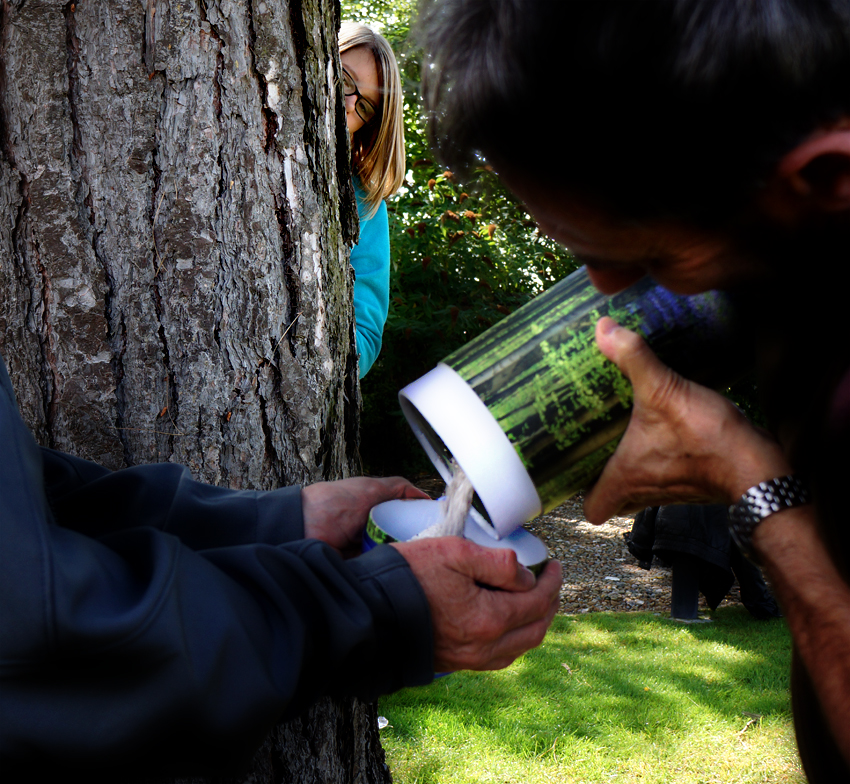This post is a  bit of a departure for us – we are reproducing in full a article I found on Huffington Post.   Something we are not accustomed to doing but to my mind it is so good, I couldn’t resist.  Written in August 2014 Elea Acheson puts into the most perceptive words, a common dilemma for many grieving parents – to speak about your dead child with a stranger or to keep her/his existence hidden.    As she explores this situation (the ‘so how many children do you have?’ scenario) Acheson seems to blow apart many preconceptions (that even I had) about what it means to grieve for the death of a child.   Her son’s death didn’t break her, she says.  No she never felt broken.  But we talk of broken hearts all the time don’t we?  And instead of being consumed with grief, she’s overflowing with love… and , wait for it, she’s grown a ‘grief bone’….  a weirdly wonderful metaphor for the changed life she now leads.   (Jimmy  August 2014)
The deliveryman stood in front of me, cheerful because it was his last drop-off before the weekend. His stream of thoughts rambled out, as every passing second made the festivities of the coming holiday grow closer. His children were planning a special treat for their mom for Mother’s Day.
His excitement was contagious. Parents love to share stories about their children, and I am no exception.
But I was faced with a recurring dilemma. Should I tell this stranger about my son, Vasu? Or should I keep my son’s existence hidden?
Being the mother of a dead child is a daily obstacle course of frustrations. Oh, sure, I get the meltdowns, or the oddball week of short tempers and crazy talk. But those are infrequent compared to the daily conflict between what I want to say about my boy and what most people, including you reading this now, are capable of hearing.
I smiled at the man and asked a few questions. But my internal cogs were already spinning, and that little inner voice shouted the usual warnings. Don’t do it, Elea. Don’t go there. He will disappoint you.
Almost everyone does, perhaps even you someday will disappoint me. It’s not your fault. My grief makes it easy to be hurt by things I can’t do anything about. Grief makes me helpless and defensive. I can sense your fear of what I am, and it can feel as if you wished my son’s death didn’t exist. It’s in your face. It’s in your body language. It’s in the way you can slam the conversation shut with few, if any, actual words. And then I must sit in silence, because my existence has made you uncomfortable.
You wouldn’t disappoint me if I kept my mouth shut. If I pretended that I was childless, or that I had let it all go, moved on, it would make you more comfortable. And I want you to be. I don’t want to be the elephant in the room. But my son didn’t cease to exist. He died. And he left me with all these memories of being his mother.
I like talking about him. I smile more when I can talk about his six years of incredible life. I also like talking about death and grief.
So, while I listened to the deliveryman explain his joy of being a father, I gave in to temptation like I always do, and told him that this year Mother’s Day was also my son’s birthday. The man’s eyes lit up and he asked me how old Vasu was. I grinned bigger, nervously, because I knew what was coming. This conversation happens with almost everyone I meet, in almost exactly the same way.
“Oh,” I said, trying to shine OKAY-NESS through my eyes. “Vasu would have been 11 this year, but he died in 2009.”
I watched his eyes widen, lips purse, and his face shut as tight as a bank’s vault on a Friday afternoon. He couldn’t just walk away because that would be rude, and he couldn’t ask any more questions because… well, truthfully, what is there to say? We hardly knew each other, and I just slapped him with several of the harshest realities to human existence. Children die, we all die, life isn’t fair, and some parents spend much of their life grieving for their dead children. Kind of a conversation killer. But I am comfortably obtuse when it comes to Vasu’s life and death. It’s a doorjamb I consistently stub my toe on.
The man shifted back and forth from right foot to left. His eyes wandered, until it dawned on him how to get out of the discomfort. He told me about a friend’s cousin who died young. It was a deflection. He told a story parallel to mine so he wouldn’t have to cross over to it. It’s not really sharing. Sharing requires asking questions. Which I did… about his friend’s cousin who died young. And then he left without knowing anything about Vasu except that he would have been 11 years old.
This is not uncommon for me. I am the mother of a dead child. Most of you don’t know what to say to me. Perhaps you are afraid to reopen my wounds. You must think that my loss has broken my heart. You don’t see that my smile is hopeful. I like revisiting his life and his death, the way elephants will return to their children’s bones and lovingly caress a femur or skull. I am always looking for those people who might be curious about Vasu. But after almost five years, I haven’t figured out how to get through to you that it’s OK to ask.
You see, the truth is Vasu’s death didn’t break me. I never felt broken. Lost, yes, most definitely. I felt so lost that I didn’t know who I was anymore. I had to start my entire life over from the bits and pieces I could pull together. In the months after his death, I fled from everything I had ever known — friends, family, Vasu’s daddy. I had more reasons to follow Vasu than reasons to want to live. I had to learn how to want life again.
But my heart didn’t break. It overflowed.
When Vasu was born, I fell in love with everything about him. But my favorite times were nursing. At first it was because my breasts were painfully engorged and every time he nursed, he drained the pressure to a reasonable ache. As we both got better at it, nursing became our face-to-face, heart-to-heart time. It was as if he was drinking love from me. After he died, my body was full of Vasu love, but he wasn’t there anymore to drain me regularly. Love festered and bulged and leaked.
Before becoming a mother, before I had Vasu, I was selfish in love. I expected it to be magical, whimsical and easy. I expected love to have the same goals, the same dreams, and the same ambition I had. Giving birth to Vasu opened my eyes to another kind of love. I won’t say unconditional love, because that doesn’t really exist. But my love for Vasu was something close to unconditional. The day Vasu was born I discovered I had a love organ that I had never used before.
Vasu’s life was hard, and at times required around-the-clock care. I could handle the sleeplessness because I had a love organ.
Whenever he slept I couldn’t stop myself from checking to see if he still breathed, because the love organ insisted I do so.
I panicked every time he caught a fever, hyper-vigilant whenever he wandered, listened to every sound he made, all because of love.
Desperate, unwieldy, crazy love.
Love got me through his diagnosis of cancer at 18-months-old. Love screamed at me to take him and run when the surgeons were preparing to cut him in half to get the tumor out. Love also calmed me and helped me hand Vasu over to the surgical team. Love softened the sounds of his screams.
Love got me through his first treatment and the years of check-ups, the health scares, his first day of kindergarten and the teachers who just didn’t understand why he was so wild. Love got me through his second treatment and held me up through the months it took for cancer to kill him.
And then he was gone, and I still had all this love bursting out of me.
When rivers flood their banks in the spring, are they broken? Grief is supposed to overflow us; that’s how it works.
Grief is not broken, and it doesn’t need fixing.
Maybe that’s why people are so scared of grief, because the word “broken” is used so often. Broken is a horrible thing. Broken is something that may mend, but will never heal. Broken will always leave scars to remind us of the pain.
The words we choose are important. The words we believe can lead us to choices that have consequences. And then we have to live with those consequences.
When Vasu was first diagnosed, I listened to the words that people used to describe my experience. They used words like “tragedy,” “unimaginable,” and “horror.” And yes, it feels like all of those. But that’s not all that it feels like. It also feels like love, because love gains strength when it is needed most. When someone you love gets in an accident, all your resentment, all your impatience, all your doubt disappears and you are left with worry, compassion and love.
Love pours out when fear creeps in.
Love is our ultimate defender.
But I wasn’t listening to love when people told me what they thought of my child’s cancer. All I could hear was fear. And I believed them. The longer I believed, the smaller fear made my world, until I was too afraid to go anywhere except the grocery store, Vasu’s preschool and the Children’s Hospital. I dragged the horror of unimaginable tragedy around with me wherever I went.
Do I blame everyone for using words of fear? No, of course not. These words are true too. But they are not the only truth.
After two failed treatments, Vasu’s cancer made me tired of believing in only the fear and pain part of grief. Tired of being sad, tired of being scared, just plain tired. I wanted something different. I wanted to witness Vasu’s death with innocent eyes.
But once again I was bombarded by words of fear.
As Vasu was dying, people said, “What you are experiencing is the worst thing a mother could possibly go through.”
Fear, trying to crawl it’s way back into my body like a parasite.
But love gave me an out. Love let me smile and nod while secretly I visualized a hand in front of their faces so that their words would bounce back.
Vasu’s death was overwhelming. As cancer took over his body, I wanted to run away. It took too long and hurt too much, but love made me stay. Love gave me the endurance to witness his death.
I knew the moment death began. I saw it in his eyes. They grew wide as he realized that the bad pain was coming back, the pain he had told me the week before that he never wanted to feel again. It broke through his morphine haze, and then he shut himself off. It took several minutes for his body to stop, but Vasu was already gone.
Over the next 24 hours, I was compelled by love to gaze into Vasu’s face. Love needed to make sure. Love needed to know what death meant. Love needed every excuse to cry.
The day after Vasu died, I woke up and discovered I had grown a grief bone. If love is an organ that overflowed me with emotion, then grief is an extra limb that unbalanced and weighed me down.
I made a promise to myself that I would let grief in as willfully as I had let love in at his birth. I would put a hand in front of society’s judgments and expectations and I would not let the fear in.
At first, I couldn’t experience grief all at once. So my body relieved me of the burden. Chemistry took over, and for days I was euphoric. I couldn’t stop giggling and I found meaning in the tiniest of things; like a stoner seeing how perfect shoelaces are. I had orgasms in my sleep. For years, stress had stolen my orgasm and deadened my thoughts. But now my body was released from stress into the immensity of grief. I leaked tears, urine, mucus, pus and breastmilk. I was a mother engorged on unsatisfied Vasu love.
Then came the cycles of grief. People describe it as being struck by waves of pain and sadness, but to me waves are peaceful, powerful and soothing. My grief, on the other hand, came on like nausea and spewed out like vomit. Every hour I regurgitated Vasu’s last breaths, and then I shook uncontrollably afterwards with the need to save him.
And like death, grief is something that everyone must face alone. No one could say the right words that would manifest my happiness, because those words don’t exist. I didn’t want to be around people who needed me to be OK — because I wasn’t OK, and I had no clue if I would ever again be OK.
I fled from everyone, because their love wasn’t Vasu’s love. I sold everything I owned except my old blue mountain bike and some camping gear, and I bicycled the Pacific Coast Bike Route, alone. Every afternoon I sat on the shore and let grief flow out. I lived only for the moment and let the future take care of itself.
I decided to allow grief to come and go as it pleased for one year, and then I would put my past behind me.
Except that’s not how it works, is it? I wasn’t broken, so I couldn’t mend. I was changed.
When you grow a grief bone, it is there for the rest of your life.
It’s been almost five years now. Some months I am clear and purposeful, other months I am an absolute pill to be around. Grief makes everything bigger. Anger is huge, sadness is deep; joy is manic. Nothing happens small or easy for me anymore.
My grief bone made me capable of standing through the entire funeral of a friend’s child without a single tear, but when another friend got married and was living the happiest day of her life, I fled sobbing in panic.
My grief bone makes me switch from almost limitless empathy to incredibly short tempers from one moment to the next.
My grief bone can make me unhappy when people like the deliveryman that day, feel safer within their silence instead of asking about Vasu. If they would just let go of their fear of my pain, then I would be free to tell them about him. He left me with a lot of good stories.
Like the time he ran across the living room at top speed, slammed through the bathroom door where his daddy was taking a pee, and asked, “Daddy, what’s privacy?”
Or the time when he had a fever and he made me read Go Dog, Go for six hours straight. My love organ gave me the stamina of a goddamn migratory bird.
If you took the time to ask, I would tell you that the reason I can smile and laugh is because I know how to cry, and that my love for Vasu showed me how.
Follow these links to Elea Acheson here
